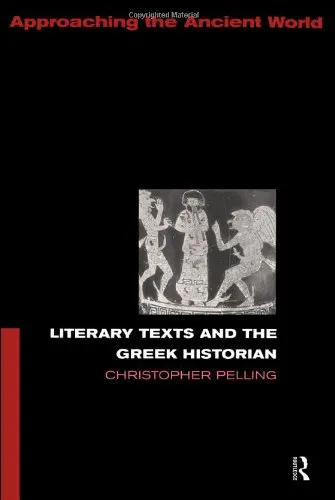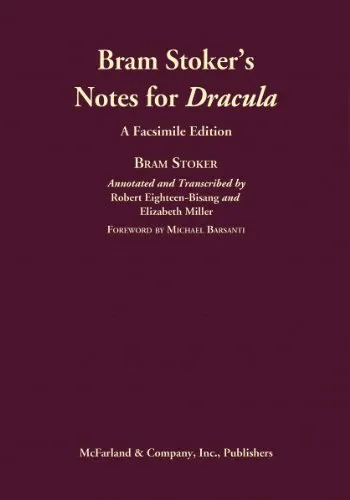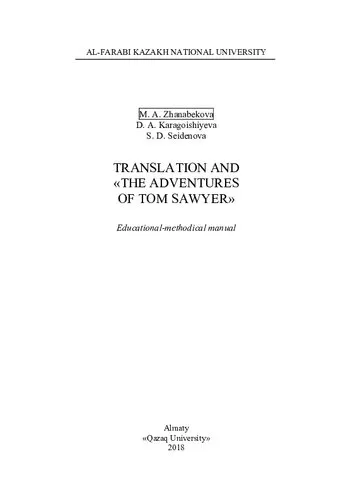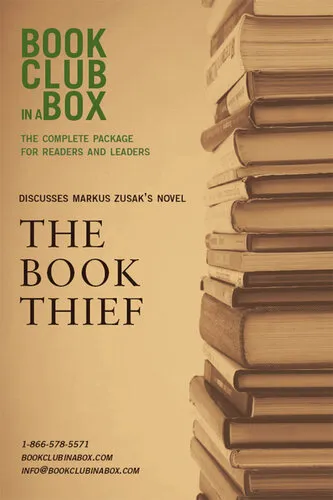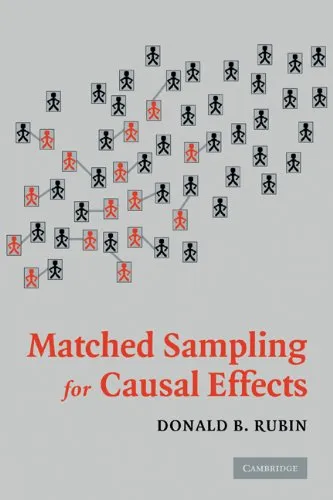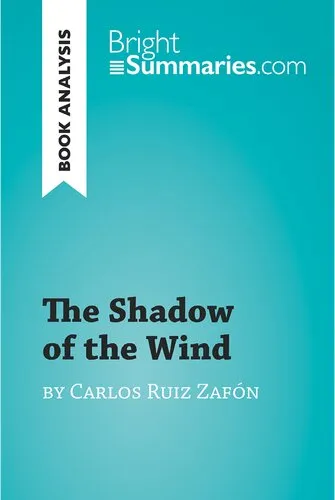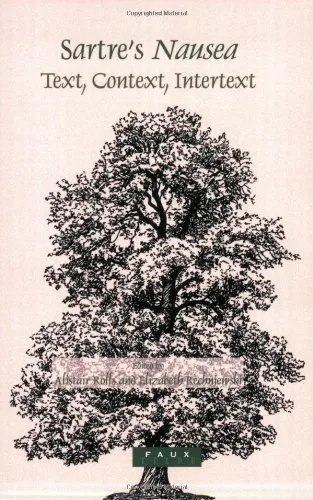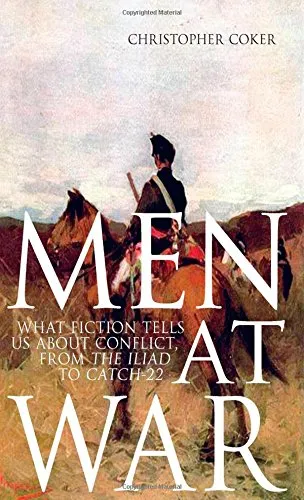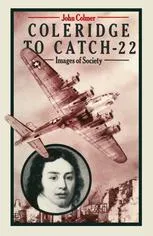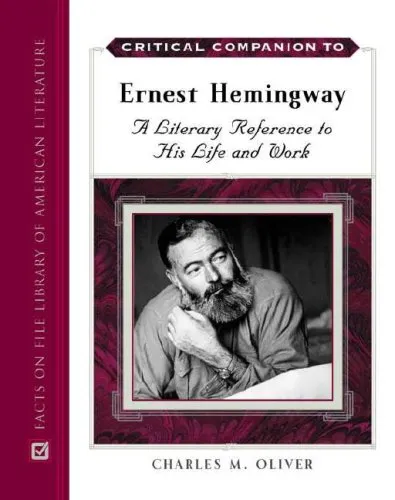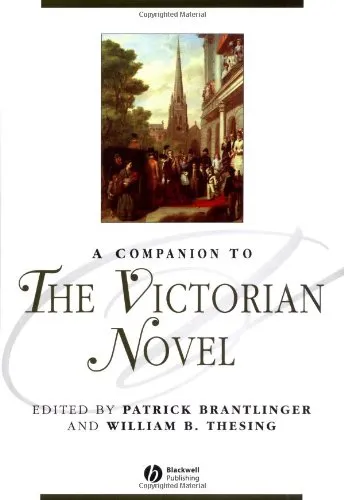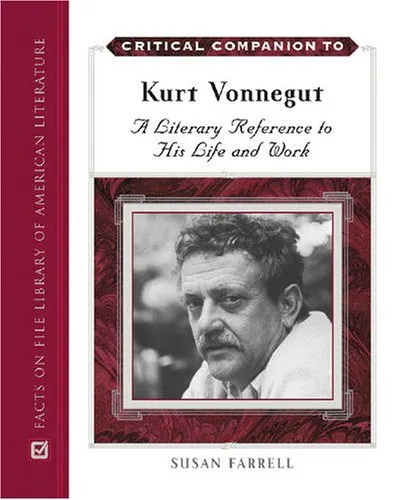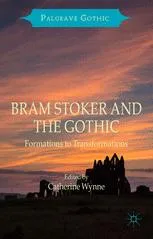Literary Texts and the Greek Historian (Approaching the Ancient World)
4.5
بر اساس نظر کاربران

شما میتونید سوالاتتون در باره کتاب رو از هوش مصنوعیش بعد از ورود بپرسید
هر دانلود یا پرسش از هوش مصنوعی 2 امتیاز لازم دارد، برای بدست آوردن امتیاز رایگان، به صفحه ی راهنمای امتیازات سر بزنید و یک سری کار ارزشمند انجام بدینکتاب های مرتبط:
معرفی کتاب 'Literary Texts and the Greek Historian'
در این کتاب، کریستوفر پلینگ دست به بررسی عمیق و تحلیلی متون ادبی و نقشی که آنها در فهم تاریخنگاری یونان باستان ایفا میکنند، میزند. این اثر بخشی از مجموعه 'Approaching the Ancient World' است و ابزارهای ضروری برای تحلیل انتقادی متون تاریخی ارائه میدهد.
خلاصهای از کتاب
در این کتاب، پلینگ به تحلیل سه دسته از متون میپردازد: ادبیات تاریخی، تراژدیها و کمدیها. او استدلال میکند که فهم عمیقتر این متون میتواند به درک بهتری از تاریخنگاران یونانی و شیوه کار آنها منجر شود. به خصوص، تمرکز او بر این است که چگونه این آثار نه تنها به عنوان منابع ساده برای اطلاعات تاریخی بلکه به عنوان اسنادی که به شکلگیری تفکر تاریخی نقش داشتهاند، استفاده میشوند.
نکات کلیدی
- نقش متون ادبی در شکلگیری جریانهای فکری تاریخنگاران یونان باستان.
- شیوه تحلیل انتقادی متون برای استخراج اطلاعات تاریخی.
- اهمیت فهم فرهنگی و ادبی برای تفسیر رویدادهای تاریخی.
نقلقولهای مشهور از کتاب
«Readable and thought-provoking, this book challenges our understanding of the Greek historians and their world.» - Christopher Pelling
«The literary texture of historical writing is more than an aesthetic garnish; it is the essence of conveying the past.»
چرا این کتاب اهمیت دارد؟
این کتاب برای دانشجویان و پژوهشگران تاریخ باستان و مطالعات کلاسیک اهمیت ویژهای دارد، زیرا دیدگاههای نویسنده به درک بهتر از چگونگی پردازش رویدادهای تاریخی توسط مورخان قدیمی و چگونگی استفاده از ادبیات به عنوان ابزاری برای تفسیر تاریخ کمک میکند. بررسی عمیق پلینگ از متون ادبی و تاریخنگاری، پرسشهای جدیدی را درباره تعامل بین معنا و حقیقت تاریخی مطرح میکند و خوانندگان را به تأمل درباره مرزهای اطلاعات تاریخی و افسانههای ادبی فرامیخواند.
Introduction
Welcome to the intricate realm of Greek historiography, where the lines between literature and historical documentation often blur and intermingle. "Literary Texts and the Greek Historian," part of the "Approaching the Ancient World" series, is a seminal work that explores the complex relationship between literary narratives and historical fact in ancient Greek texts. As we navigate this journey, we uncover how the great historians of Greece utilized literary techniques to enhance their recordings of history, offering not only facts but also enriching the cultural and intellectual tapestry of their time.
Detailed Summary of the Book
In "Literary Texts and the Greek Historian," Christopher Pelling delves into the methodologies of classical Greek historians such as Herodotus and Thucydides, examining how they crafted historical narratives that were as literary as they were factual. Pelling argues that historiography in ancient Greece was deeply intertwined with literary artistry, and understanding this symbiosis is key to appreciating the depth and complexity of those historical texts. The book is structured to guide readers through careful analysis and interpretation of ancient texts, focusing on the intricate mechanisms of storytelling employed by Greek historians.
The work invites readers to consider the motivations behind the narrative choices these historians made, the influences of the oral tradition, and the desire to appeal to their contemporary audiences. By adopting a literary lens to assess these historical accounts, Pelling uncovers layers of meaning and intent that might otherwise go unnoticed when approached solely from a modern historical perspective.
Key Takeaways
- Greek historiography cannot be separated from its literary context; understanding the narrative techniques is essential to understanding the historical accounts.
- The works of Greek historians should be seen as part of an ongoing dialogue with their predecessors and contemporaries.
- The blend of fact and fiction in these texts demonstrates the historians' objectives to educate, persuade, and entertain their audiences.
- Recognizing literary patterns in historical texts can lead to a greater comprehension of ancient Greek culture and mentality.
Famous Quotes from the Book
"The historian must tread the fine line between poet and chronicler, where creativity and fidelity to the truth intermingle."
"In every historical narrative, there is an underlying desire to engage with the past in a manner that is as enlightening as it is engaging."
Why This Book Matters
The importance of "Literary Texts and the Greek Historian" lies in its innovative approach to classical Greek historiography. By positioning these ancient texts within both historical and literary frameworks, Pelling challenges traditional interpretations and invites modern readers to reassess commonly held perceptions of Greek history. The book serves as a crucial reminder of the multifaceted nature of historical narratives and the necessity of understanding the context in which they were produced.
This work is particularly significant for students and scholars of history, literature, and classical studies, as it provides tools to critically engage with ancient texts beyond surface-level analysis. By exploring the artistry behind historical writings, Pelling enriches the reader's perspective, offering a comprehensive understanding of how stories of the past are constructed and preserved through the ages.
دانلود رایگان مستقیم
شما میتونید سوالاتتون در باره کتاب رو از هوش مصنوعیش بعد از ورود بپرسید
دسترسی به کتابها از طریق پلتفرمهای قانونی و کتابخانههای عمومی نه تنها از حقوق نویسندگان و ناشران حمایت میکند، بلکه به پایداری فرهنگ کتابخوانی نیز کمک میرساند. پیش از دانلود، لحظهای به بررسی این گزینهها فکر کنید.
این کتاب رو در پلتفرم های دیگه ببینید
WorldCat به شما کمک میکنه تا کتاب ها رو در کتابخانه های سراسر دنیا پیدا کنید
امتیازها، نظرات تخصصی و صحبت ها درباره کتاب را در Goodreads ببینید
کتابهای کمیاب یا دست دوم را در AbeBooks پیدا کنید و بخرید
1442
بازدید4.5
امتیاز0
نظر98%
رضایتنظرات:
4.5
بر اساس 0 نظر کاربران
Questions & Answers
Ask questions about this book or help others by answering
No questions yet. Be the first to ask!
